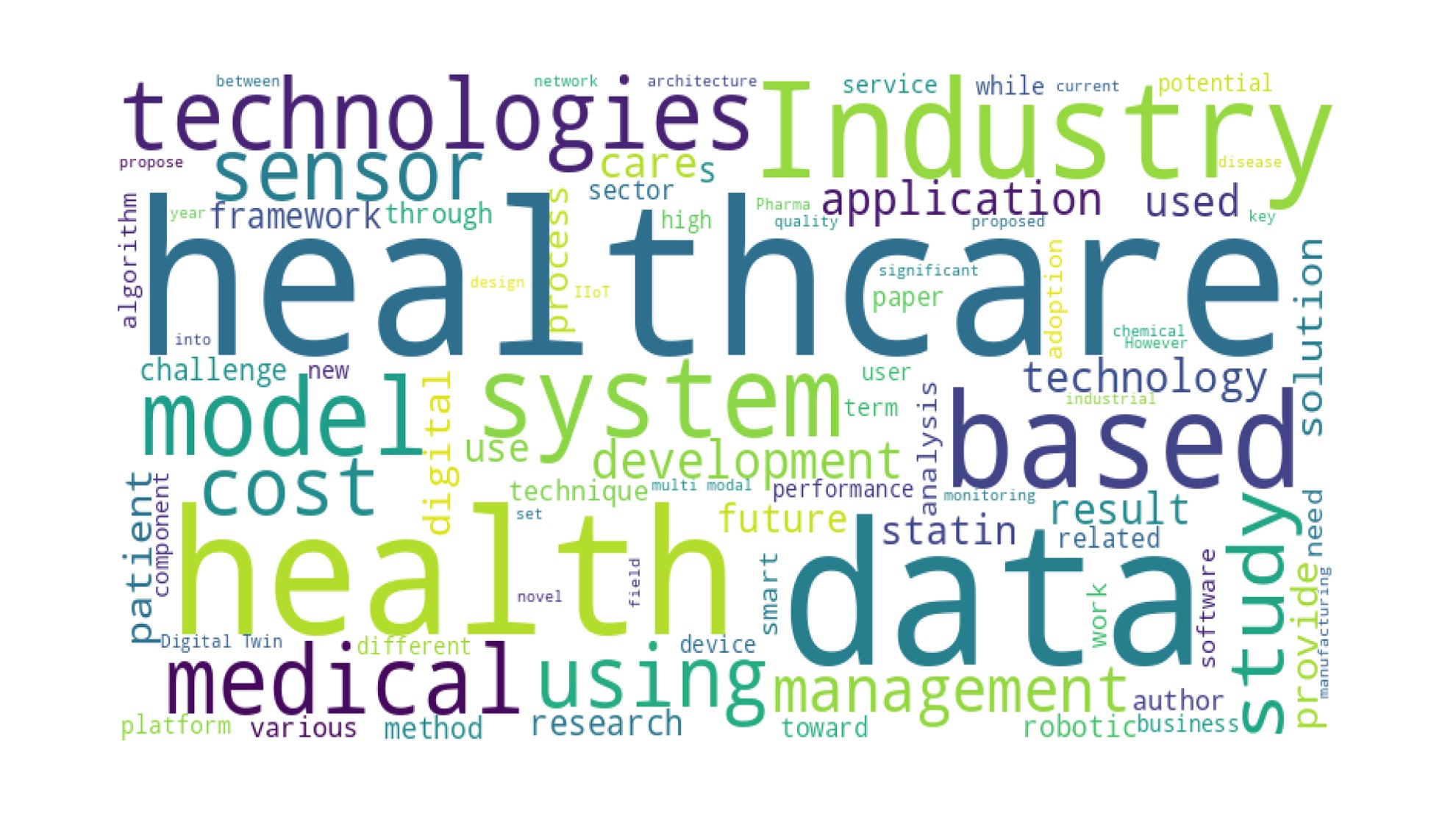Navigating the digital transformation: industry 4.0's role in modern healthcare
Main Article Content
Abstract
Background: The advent of Industry 4.0 has ushered in a new era of technological advancements, significantly impacting various sectors, including healthcare. The integration of Industry 4.0 technologies such as artificial intelligence, the Internet of Things, and big data analytics promises to revolutionize healthcare systems, enhancing efficiency, accuracy, and patient outcomes. However, the rapid evolution of these technologies and their implications in healthcare necessitate a comprehensive understanding of current research trends, challenges, and future directions.
Objective: This systematic literature review aims to analyze and synthesize the current body of research on the integration of Industry 4.0 technologies in healthcare. The review focuses on identifying key technologies, evaluating their impact on healthcare delivery, operational efficiencies, and policy implications, while highlighting challenges and potential areas for future research.
Results: Analysis of articles from 2022 and 2023 revealed a significant focus on practical implementations of Industry 4.0 technologies in healthcare. Key findings include the prevalent use of data analytics and AI in enhancing patient care and operational efficiencies, and the emerging challenges related to data privacy and ethical considerations. The review also identified a shift from theoretical exploration to real-world applications of these technologies in healthcare settings.
Conclusion: This study enriches the field of healthcare research by providing a contemporary overview of the integration of Industry 4.0 technologies in healthcare. It highlights the transition towards practical applications, underlines the critical challenges faced, and suggests future research directions. By synthesizing recent literature, this review offers valuable insights for healthcare professionals, policymakers, and technologists, guiding informed decision-making and fostering an interdisciplinary approach to successfully integrate Industry 4.0 technologies in healthcare.
Article Details

This work is licensed under a Creative Commons Attribution 4.0 International License.
How to Cite
References
Nindrea RD. Impact of Telehealth on the Environment During the COVID-19 Pandemic in Indonesia. Asia Pac J Public Health. 2023;35(2-3):227.
Nindrea RD. Wolbachia: New Hopes for the Prevention of Dengue Hemorrhagic Fever in Indonesia. Asia Pac J Public Health. 2024;36(2-3):280.
Nindrea RD, Sari NP, Lazuardi L, Aryandono T. Validation: The Use of Google Trends as an Alternative Data Source for COVID-19 Surveillance in Indonesia. Asia Pac J Public Health. 2020;32(6-7):368-369.
He L, Eastburn M, Smirk J, Zhao H. Smart Chemical Sensor and Biosensor Networks for Healthcare 4.0. Sensors (Basel). 2023;23(12):5754.
De Benedictis A, Mazzocca N, Somma A, Strigaro C. Digital Twins in Healthcare: An Architectural Proposal and Its Application in a Social Distancing Case Study. IEEE J Biomed Health Inform. 2023;27(10):5143-54.
Malviya N, Malviya S, Dhere M. Transformation of Pharma Curriculum as Per the Anticipation of Pharma Industries-Need to Empower Fresh Breeds with Globally Accepted Pharma Syllabus, Soft Skills, AI and Hands-on Training. Indian J Pharm Educ Res. 2023;57(2):320-8.
Munsayac FE, Culaba A, Bugtai N, Abuan RD, Kaplan A. Comprehensive Study of Industry 4.0 in Robotics for Policy Development. Recoletos Multidiscip Res J. 2023;11(1):55-69.
Matyori A, Brown CP, Ali A, Sherbeny F. Statins utilization trends and expenditures in the U.S. before and after the implementation of the 2013 ACC/AHA guidelines. Saudi Pharm J. 2023;31(6):795-800.
Sutarno M, Anam K. An Empirical Study on the Use of Digital Technologies to Achieve Cost-Effectiveness in Healthcare Management. Am J Health Behav. 2022;46(6):781-793.
Lepore D, Frontoni E, Micozzi A, Moccia S, Romeo L, Spigarelli F. Uncovering the potential of innovation ecosystems in the healthcare sector after the COVID-19 crisis. Health Policy. 2023;127:80-6.
Nandi S. Reiterating the Importance of Publicly Funded and Provided Primary Healthcare for Non-communicable Diseases: The Case of India. Int J Health Policy Manag. 2022;11(6):847-50.
AlSahly AM, Hassan MM, Saleem K, Alabrah A, Rodrigues JJPC. Handheld Device-Based Indoor Localization with Zero Infrastructure (HDIZI). Sensors (Basel). 2022;22(17):6513.
Abedsoltan H. COVID-19 and the chemical industry: impacts, challenges, and opportunities. J Chem Technol Biotechnol. 2023;98(12):2789-97.
Nindrea RD, Usman E, Katar Y, Darma IY, Warsiti, Hendriyani H, Sari NP. Dataset of Indonesian women's reproductive, high-fat diet and body mass index risk factors for breast cancer. Data Brief. 2021;36:107107.
Djanas D, Yusirwan, Martini RD, Rahmadian, Putra H, Zanir A, Syahrial, Nindrea RD. Survey data of COVID-19 vaccine side effects among hospital staff in a national referral hospital in Indonesia. Data Brief. 2021;36:107098.
